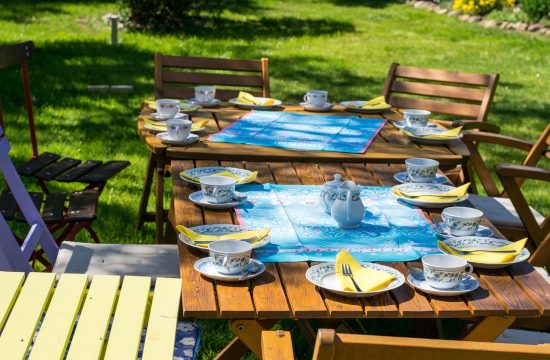MARTINSVILLE, Va.–(BUSINESS WIRE)–Hooker Furniture Corporation (NASDAQ-CM:HOFT) announced today that it
has completed its acquisition of the assets of Bedford, Va.-based upscale occasional chair manufacturer Sam Moore Furniture from La-Z-Boy Incorporated. The Sam Moore Furniture business will operate as a wholly-owned subsidiary of Hooker.
“We’re excited about further diversifying our company and becoming a more complete upholstery resource, as well as the long term opportunity to grow revenues with the addition of Sam Moore,” said Paul B. Toms Jr., chairman, chief executive officer and president of Hooker. “Hooker’s position as a niche player will be enhanced by Sam Moore, a dominant player in decorative chairs with an emphasis on fabric-to-frame customization.”
He added that the transaction “should be seamless to Sam Moore’s customers, as the product line and management team at Sam Moore will be the same.” In addition, customer service will continue to reside in Bedford.
Mike Moldenhauer will continue as President and Chief Executive Officer of Sam Moore. Both Moldenhauer and Toms are optimistic about the prospects of ramping up revenues at Sam Moore in the long term through an expanded sales effort. “It is well known that Hooker Furniture has one of the best sales forces in our industry,” Moldenhauer said. “Adding the Hooker Furniture sales team will more than triple our selling and service efforts. Everyone at Sam Moore is quite excited. We all look forward to the obvious benefits from the marriage of our companies.”
Since the first quarter of Hooker’s fiscal year just ended, Hooker will own Sam Moore for approximately nine months of its current fiscal year. “While we do not expect the purchase to be accretive to earnings in the first nine months of ownership, we anticipate improved sales and operating performance in the second fiscal year,” said E. Larry Ryder, executive vice president of finance and administration at Hooker.
In the short term, Hooker expects that revenues from Sam Moore will help replace revenues lost as a result of closing Hooker’s domestic wood furniture manufacturing operations in Roanoke and Martinsville, Va. in the past year. Longer term, “we believe we can help grow Sam Moore through the expanded sales and service effort,” Toms said.
Ranked among the nation’s top 10 largest publicly traded furniture sources based on 2013 shipments to U.S. retailers, Hooker Furniture is an 83-year old residential wood, metal and upholstered furniture resource. The Company’s principal customers are home furnishings retailers who are broadly dispersed throughout North America. Major product categories include home entertainment, home office, accent, dining, bedroom and bath furniture and motion and stationary leather and fabric upholstered furniture. With approximately 1,000 employees, the Company operates manufacturing plants, several distribution centers, warehouses and showrooms and a corporate office in Virginia and North Carolina. Please visit our websites at www.hookerfurniture.com and www.bradington-young.com and www.sammoore.com.
Statements made in this release, other than those concerning historical financial information, may be considered forward-looking statements. These statements are subject to risks and uncertainties that could cause actual results to differ materially from those in the forward-looking statements, including but not limited to: whether Hooker Furniture will successfully integrate Sam Moore’s business operations; price competition in the furniture industry; adverse political acts or developments in, or affecting, the international markets from which the Company imports products, including duties or tariffs imposed on products imported by the Company; changes in domestic and international monetary policies and fluctuations in foreign currency exchange rates affecting the price of the Company’s imported products; achieving and managing growth and change, and the risks associated with acquisitions, restructurings, strategic alliances and international operations; general economic or business conditions, both domestically and internationally; the cyclical nature of the furniture industry; risks associated with the cost of imported goods, including fluctuation in the prices of purchased finished goods and transportation and warehousing costs; risks associated with domestic manufacturing operations, including fluctuations in the prices of key raw materials, transportation, and warehousing costs, domestic labor costs and environmental compliance and remediation costs; supply, transportation and distribution disruptions, particularly those affecting imported products; risks associated with distribution through retailers, such as non-binding dealership arrangements; capital requirements and costs; and competition from non-traditional outlets, such as catalogs, internet and home improvement centers.










